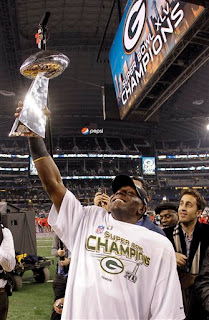Kate and I traveled to Kutaisi, Georgia's second city (as seen in McDonald's related photos below) for a weekend, then made a visit to Tbilisi the next weekend. The Kutaisi trip was largely hampered by a lot of rain, though I plan on returning. Its development made me realize how Zugdidi is really a frontier town, located on between the Black Sea, the northern Caucasus, and occupied Abkhazia. It's the last stop on the road. Not a judgment, just an observation.
Tbilisi was another story. After arriving late Friday night, we found cheap accommodation with a lovely woman who spoke no English, but with whom we were able to speak in broken German and more broken Georgian. (Note: I have relied on German here far more often than I did during the few weeks I've spent in Germany. My year of studying Russian has proven very helpful as well.) We met up with some other friends in Tbilisi, viewing a concert by Raughley and some of his students. (Raughley and I worked together in college, and it's his blog that inspired me to do this program.)
On Sunday, we visited Vake Park, a beautiful park in northern Tbilisi that hosts the Iranian Embassy and (allegedly) masks the mass graves of the victims of Stalin's purges. It also has a large Soviet-era World War II memorial, commemorating the contributions of Georgians toward the USSR's victory in the war. It gives the dates of the USSR's involvement as 1941-1945, omitting what the Soviets were up to during the first twenty months of the war.
The monument provided some beautiful vistas of Tbilisi and the surrounding Caucasus Mountains, which seem to go on forever. There's a very definite line where the city ends and the wilderness of the mountains begins. Hopefully Kate will post pictures of it.
We intended to visit Gori, Stalin's hometown, as well, but that will wait for our next journey.
Teaching is going well. I recently saw a news clip that seemed to show Georgian Education Ministry folks buying new textbooks from the Oxford Press, presumably in an effort to standardize the English curriculum throughout the country. Hopefully, this also means the Ministry will be buying henceforth the books for students, rather than having the students buy their own books.
Aside from the books, sometimes classes are hampered by teaching materials (posters, charts, pictures) that date to Soviet days, when English speakers were rare visitors to Georgia. One such Soviet poster details parts of the body, including "A thooth" (arrow pointing to teeth), "a hear" (arrow pointing to a guy's hair), and "a foot" (arrow pointing to a guy's thigh). Another pairs the letters of the alphabet with labeled picture examples: for H there's a picture of a "Horce", for S there's a picture of some sort of snail/centipede creature labeled "Sink", and for B a picture of a grizzly is accompanied by the label "Beer". N is correctly paired with a picture of a Nilgai, though I'd never heard that word before coming here. (I originally thought it said "Naz'gul".)
 |
| "M is for Mordor, N is for Nazgul" is widely considered Tolkien's worst book. |
A good number of the problematic books list the British Council as an adviser, including one in which a fictional Georgian teenager visiting Chicago writes that "it's April," and "baseball season is starting", so everyone is walking around wearing "Chicago Bulls jerseys." My theory on this is that some Briton had heard of the Chicago Bulls and heard of baseball, then Googled the two terms and believed they had a match when they found a picture of Michael Jordan during his year in the minor leagues.
The funniest thing I've seen here so far is the Iranian laundry detergent pictured below. The word apparently means "snow", but...
 |
| "Not in here, Mister! This is a Mercedes!" |
I like how happy the family looks. ("Honey, it's Barf!" "I know, isn't it wonderful?")
Stats:
1.74 - as of today, the Lari/$ exchange rate. It was about 1.8 when I arrived.
1 - times I've seen Wisconsin on the news here so far. I'd like this number to remain low.
Georgian words:
qaraqi - butter
qalaqi - city
tsvimiani - rainy
vlaparakob (germanuli) - I speak (German)
skami - chair
Phrases the authors thought were important to include in my Georgian-English phrase book:
(in order)
"I want to get to know you better."
"Can I kiss you?"
"Do you want to come inside for a while?"
"Can I stay over?"
"I'm serious about you."











